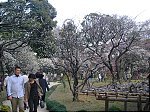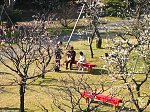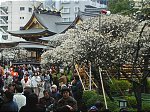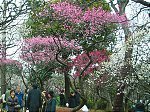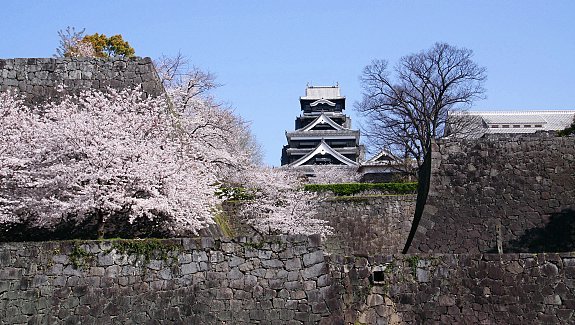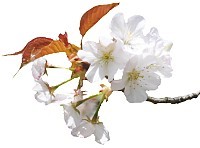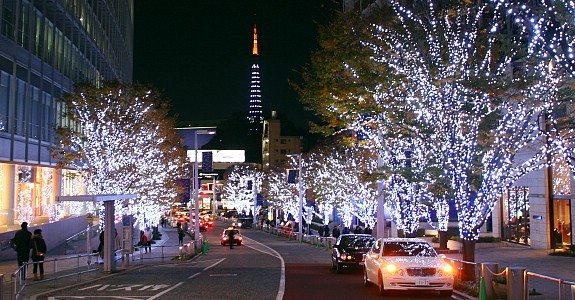With its crisp sweetness mixed with a subtle tartness, a Nagano Prefecture apple appeared destined to become a big hit in Japan. But there was one serious problem with the Shinano Gold yellow apples. Most Japanese consumers feel that apples should be red.
However, Shinano Gold apples may have found a more appreciative home. They will be cultivated in Italy next year as part of Nagano Prefecture's attempt to break into the European market, where consumers are not so picky about apple color.
"We want to appeal our prefecture to the rest of the world with Shinano Gold," Nagano Governor Shuichi Abe said when he visited Italy in September. He was negotiating what is believed to be the first deal in which a variety of fruit from Japan will be grown in foreign soil under a licensing arrangement.
Shinano Gold, developed by the prefectural government-run Nagano Fruit Tree Experiment Station, was registered as a new variety with the Ministry of Agriculture, Forestry and Fisheries in 1999.
Not only is the apple tasty, but it also retains its flavor for a long period after being harvested. One staff member at the experiment site simply boasted, "It's a wonderful apple."
However, yellow apples account for only 10 percent of the entire apple market in Japan. And major Asian importers of Japanese apples have shown little interest in yellow apples.
But in Europe, yellow and green apples are as popular as red ones, and the three colors are given equal space on shelves at grocery stores, sources said.
Shinano Gold attracted the attention of SK Sudtirol, a group of agricultural associations in Italy, which gave the Nagano apple higher marks in terms of taste than the Golden Delicious, the main brand of European yellow apples.
Agricultural associations of SK Sudtirol are located in Italy's northern South Tyrol region, which produces about 900,000 tons of apples annually, larger than Japan's total production of about 800,000 tons.
The apples grown in South Tyrol are distributed around Italy and exported to other European countries.
The farmers of the associations are now conducting cultivating tests for Shinano Gold apples. They are expected to sign a license contract in January.
Under the contract, Nagano Prefecture will receive licensing fees from the associations based on sales of the apple.
Annual apple production in Nagano Prefecture fell to 160,000 tons in 2009, compared with more than 200,000 tons annually in the 1990s. The prefecture is banking on the success of Shinano Gold in Europe to increase profits.
"We hope this will open up a new business avenue for the apple industry," an official of the prefectural government's agricultural division said.
 Plum or Ume Blossoms are sometimes confused with their cherry blossom cousins. They look a bit similar, but noticeably darker and pinker. They also bloom much earlier–the end of February as opposed to the end of March or beginning of April.
Plum or Ume Blossoms are sometimes confused with their cherry blossom cousins. They look a bit similar, but noticeably darker and pinker. They also bloom much earlier–the end of February as opposed to the end of March or beginning of April. The warm weather has led me to being slightly arty, as evidence above (especially that last one!) My creative energies have been a bit dormant lately, so it feels really nice to just play around with layers & colors. These photos were somewhat inspired by Mika Ninagawa, one of my favorite Japanese photographers, and also utilized Hipstamatic. What do you guys think, did they turn out ok?
The warm weather has led me to being slightly arty, as evidence above (especially that last one!) My creative energies have been a bit dormant lately, so it feels really nice to just play around with layers & colors. These photos were somewhat inspired by Mika Ninagawa, one of my favorite Japanese photographers, and also utilized Hipstamatic. What do you guys think, did they turn out ok?















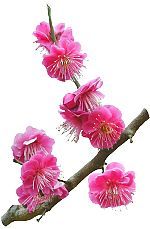 The Japanese plum or ume (sometimes referred to as a Japanese apricot) has played an important role in
The Japanese plum or ume (sometimes referred to as a Japanese apricot) has played an important role in 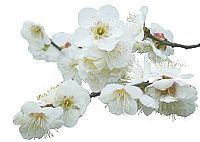 Like
Like 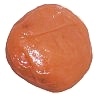 The actual ume fruit is more sour than the western plum or apricot, and is usually processed in various ways before eaten.
The actual ume fruit is more sour than the western plum or apricot, and is usually processed in various ways before eaten.



